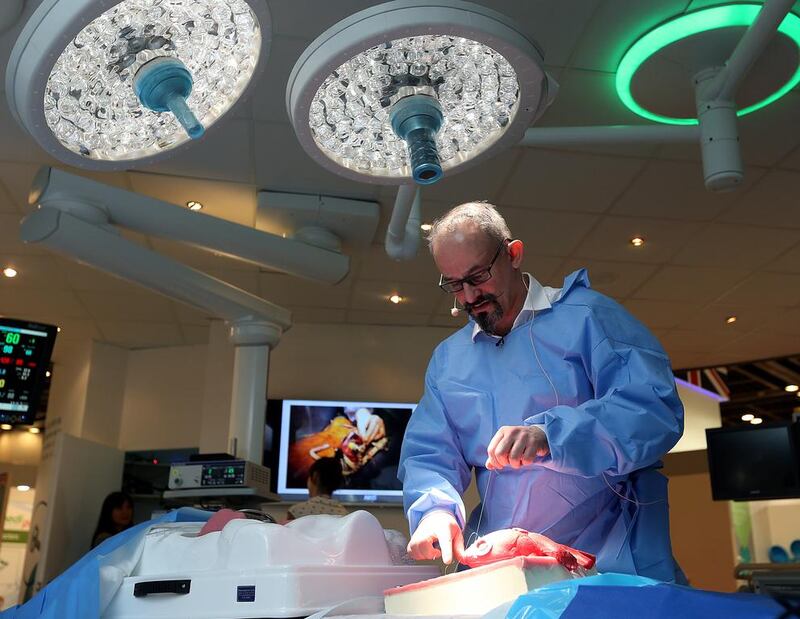SHARJAH // An Emirati man has become the first patient in the UAE to receive an artificial heart.
The pioneering surgery, carried out by a team in Sharjah’s Al Qassimi Hospital, was welcomed by Sheikh Mohammed bin Rashid, Vice President and Ruler of Dubai, in a tweet.
“I congratulate the Ministry of Health’s medical team on this successful surgery,” he said.
“It is the first artificial heart transplant in the UAE and it saved the life of a 21-year-old Emirati.”
The young man, a student at the University of Sharjah, was fitted with a left ventricular assist device and now relies on the battery-powered pump to operate his bionic heart and keep him alive.
The operation was carried out on Monday, but doctors did not announce the successful procedure until Thursday.
Wael Al Mahmeed, cardiologist at Sheikh Khalifa Medical City in Abu Dhabi and head of Emirates Cardiac Society, also welcomed the news.
“It is very exciting news and this is a big step forward for future transplantation,” he said.
Dr Mahmeed said often those with severe heart disease were fitted with the assist device (VAD) as a form of “destination therapy” – long-term, permanent support in patients who are not candidates for a heart transplant, or for those waiting for a heart transplant from a donor.
“It is good news there is treatment available in the country for patients with severe heart failure,” said Dr Mahmeed. “Ordinarily they would have been sent abroad and would have to stay abroad for a long time.”
Artificial heart transplants should now become more of a common occurrence here, where heart disease is one of the leading causes of death, he said.
Abdulrahman Al Owais, the Minister of Health, also praised the surgeons.
“Completing the first artificial heart surgery in the UAE and, most importantly, saving a young Emirati’s life, is a great success that we take pride in,” Mr Al Owais said.
Dr Aref Al Nooriani, executive director of the cardiology department at Al Qassimi Hospital, said when the Emirati was admitted to the hospital on June 11 it was clear they had a short window of time in which to save his life.
He had severe heart failure, as well as kidney and liver failure.
The patient, he said, was now recovering after the operation.
Heart failure results in the organ being no longer able to pump blood and is commonly caused by coronary artery disease and hypertension.
Like the heart, the VAD is a pump and helps the left ventricle to pump blood to the aorta.
The device has a cable connected to a battery-powered control unit that allows the patient to be fully mobile.
The pioneering procedure was first demonstrated at Arab Health earlier this year by Royal Brompton & Harefield Hospitals.
“While the demonstration takes just under an hour, the real-life operation can take up to seven hours,” said Andre Simon, director of heart and lung transplants and VAD at Royal Brompton & Harefield Hospitals. “Around the world, VADs have already become clinical routine and many thousands of patients have been treated.
“Today, a significant number of patients receive this device instead of an actual heart transplant.”
VADs are especially relevant to patients who are not suitable candidates for a heart transplant – for instance, patients with underlying health problems or significant weight issues.
“For such patients, VADs can significantly increase the quality and length of life,” said Mr Simon. “VADs are used both as short and long-term devices, and in many instances as substitutes for heart transplants.
“The device itself can last longer than a patient’s entire lifetime – it can keep going for 100 years
“As the VAD devices have been around for a relatively short time [less than 20 years], there are no long-term case studies currently available. That said, the longest VAD recipient under my care has now had the device for nine years.”
The first transplant using a synthetic heart was carried out in 1969 by American heart surgeon Denton Cooley.
jbell@thenational.ae





